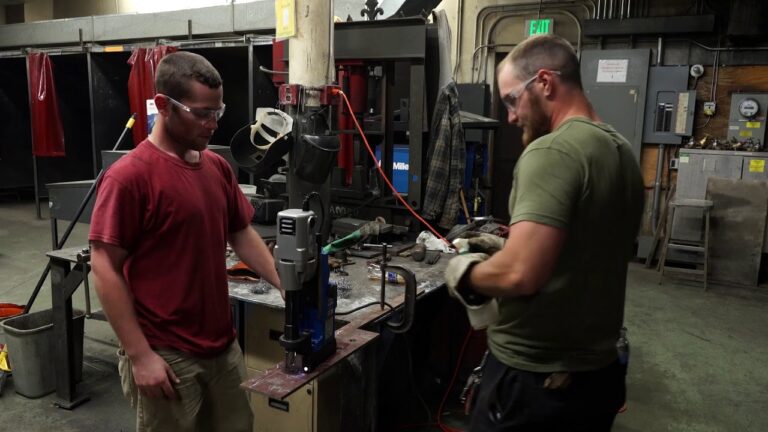Exciting Career: Cardiovascular Technologist – Lucrative Salary

Cardiovascular Technologist Job Description Template
Cardiovascular Technologist Job Description A cardiovascular technologist is a healthcare professional who specializes in performing diagnostic tests and procedures related to the heart and blood vessels. They work closely with cardiologists and other members of the healthcare team to diagnose and treat cardiovascular conditions. Some of the key responsibilities of a cardiovascular technologist include: 1. Performing diagnostic tests: Cardiovascular technologists use various medical imaging equipment, such as echocardiogram machines and ultrasound devices, to capture images of the heart and blood vessels. They assist in conducting stress tests, electrocardiograms (EKGs), and other diagnostic procedures to evaluate patients’ cardiovascular health. 2. Assisting during invasive procedures: In addition to non-invasive tests, cardiovascular technologists also assist cardiologists during invasive procedures, such as cardiac catheterizations and angioplasties. They help in preparing the patient for the procedure, operating specialized equipment, and monitoring the patient’s vital signs throughout the procedure. 3. Patient care and education: Cardiovascular technologists play a crucial role in patient care. They explain procedures to patients, address their concerns, and ensure their comfort during tests and procedures. They also educate patients on maintaining heart health, managing cardiovascular conditions, and lifestyle modifications. 4. Equipment maintenance and quality control: It is the responsibility of cardiovascular technologists to ensure that medical equipment is properly maintained and calibrated for accurate test results. They perform routine maintenance, troubleshoot equipment malfunctions, and follow quality control protocols to ensure the accuracy and reliability of test results. 5. Documentation and reporting: Cardiovascular technologists maintain detailed records of patients’ medical history, test results, and procedures performed. They accurately document findings and communicate them to the cardiologist or other healthcare professionals involved in the patient’s care. In summary, cardiovascular technologists play a vital role in diagnosing and treating cardiovascular conditions. Their expertise in performing diagnostic tests, assisting during invasive procedures, providing patient care and education, and maintaining equipment contribute to the overall cardiovascular health and well-being of patients.Cardiovascular Technologist Responsibilities
Cardiovascular Technologist Requirements
How Much Does A Cardiovascular Technologist Make?
Cardiovascular Technologist Salary
| Experience Level | Annual Salary |
|---|---|
| Entry Level | $49,410 |
| 1-4 Years | $52,621 |
| 5-9 Years | $57,948 |
| 10-19 Years | $65,125 |
| 20+ Years | $70,861 |
A Cardiovascular Technologist’s salary varies depending on their level of experience. Entry-level professionals can expect to earn an annual salary of around $49,410. As they gain more experience, their salary tends to increase. Those with 1-4 years of experience can make approximately $52,621 per year, while those with 5-9 years of experience can earn about $57,948 annually. Cardiovascular Technologists with 10-19 years of experience can expect to make around $65,125 per year, and those with 20 or more years of experience can earn approximately $70,861 annually.
Cardiovascular Technologist Salaries by Country
Top Paying Countries for Cardiovascular Technologist
| Country | Average Salary (USD) |
|---|---|
| United States | 70,000 |
| Switzerland | 65,000 |
| Australia | 60,000 |
| Canada | 55,000 |
| United Kingdom | 50,000 |
Cardiovascular Technologists are highly skilled healthcare professionals who assist physicians in diagnosing and treating cardiovascular diseases. The salaries for these professionals vary by country. According to the data, the highest paying countries for Cardiovascular Technologists are the United States, Switzerland, Australia, Canada, and the United Kingdom. These countries offer average salaries ranging from $50,000 to $70,000 per year. It is important to note that salaries may vary based on experience, qualifications, and cost of living in each country. Cardiovascular Technologists play a vital role in the healthcare industry, contributing to the prevention and treatment of heart-related conditions.
A video on the topic Cardiovascular Technologist
Video Source : Career IgniterInterview Questions for Cardiovascular Technologist
1. What is the role of a Cardiovascular Technologist?
A Cardiovascular Technologist performs diagnostic tests and assists physicians in diagnosing and treating cardiovascular diseases.
2. What are some common tests performed by Cardiovascular Technologists?
Common tests performed by Cardiovascular Technologists include electrocardiograms (EKGs), echocardiograms, stress tests, Holter monitoring, and cardiac catheterization.
3. What are the necessary skills for a Cardiovascular Technologist?
Some necessary skills for a Cardiovascular Technologist include strong attention to detail, good hand-eye coordination, the ability to interpret test results, strong communication skills, and the ability to work well in a team.
4. What is the importance of accuracy in the work of a Cardiovascular Technologist?
Accuracy is crucial in the work of a Cardiovascular Technologist as the tests they perform help in determining the proper diagnosis and treatment plan for patients. Any inaccuracies can lead to incorrect diagnoses and potential harm to the patient.
5. How do Cardiovascular Technologists ensure patient safety during tests?
Cardiovascular Technologists ensure patient safety during tests by following proper protocols, maintaining a sterile environment, monitoring the patient’s vital signs, and providing clear instructions to the patient throughout the procedure.
6. How does a Cardiovascular Technologist communicate test results to the physician?
A Cardiovascular Technologist communicates test results to the physician by documenting the findings accurately, preparing detailed reports, and discussing the results with the physician in person or through electronic communication.
7. What is the role of a Cardiovascular Technologist in surgical procedures?
In surgical procedures, a Cardiovascular Technologist assists the physician by preparing the necessary equipment, monitoring the patient’s vital signs, and ensuring the sterile environment is maintained during the procedure.
8. How do Cardiovascular Technologists stay updated with the latest advancements in their field?
Cardiovascular Technologists stay updated with the latest advancements in their field by attending conferences, participating in continuing education programs, reading medical journals, and staying connected with professional organizations.
9. What are some challenges faced by Cardiovascular Technologists?
Some challenges faced by Cardiovascular Technologists include dealing with high-stress situations, working long hours, handling difficult patients, and staying updated with constantly evolving technologies and procedures.
10. Why did you choose to become a Cardiovascular Technologist?
Each individual’s reasons for choosing to become a Cardiovascular Technologist may vary. However, some common reasons include a passion for healthcare, a desire to help others, an interest in cardiovascular diseases, and a fascination with medical technology.






